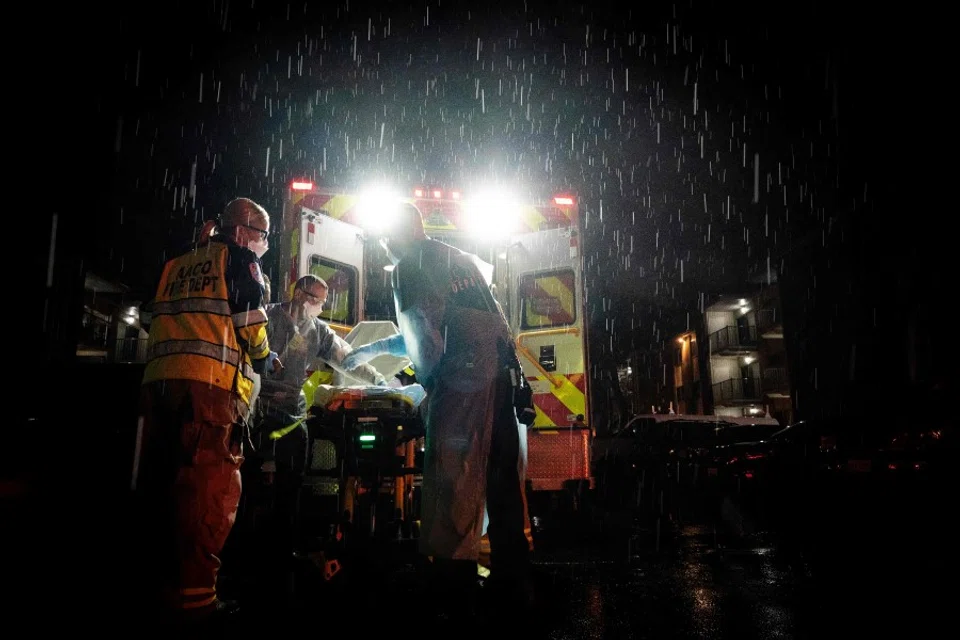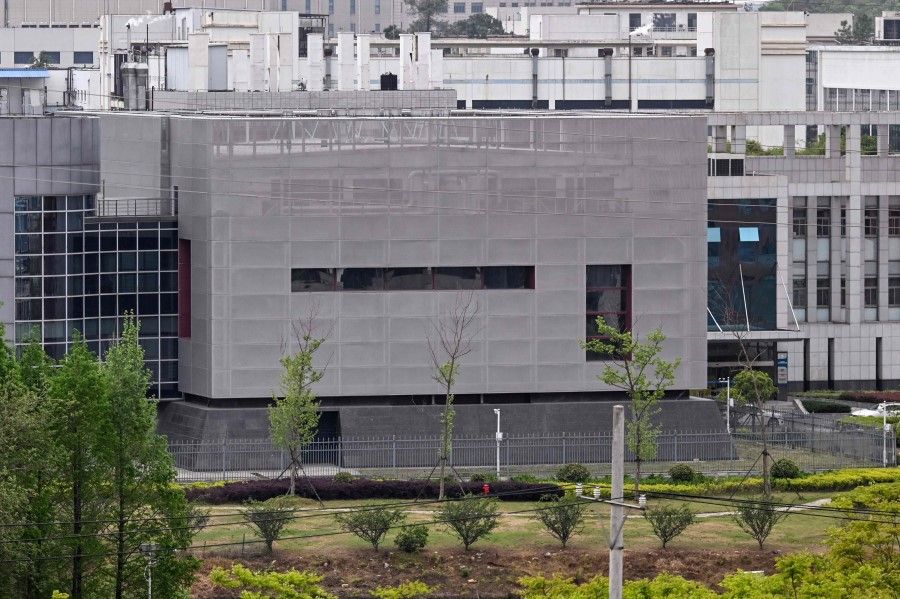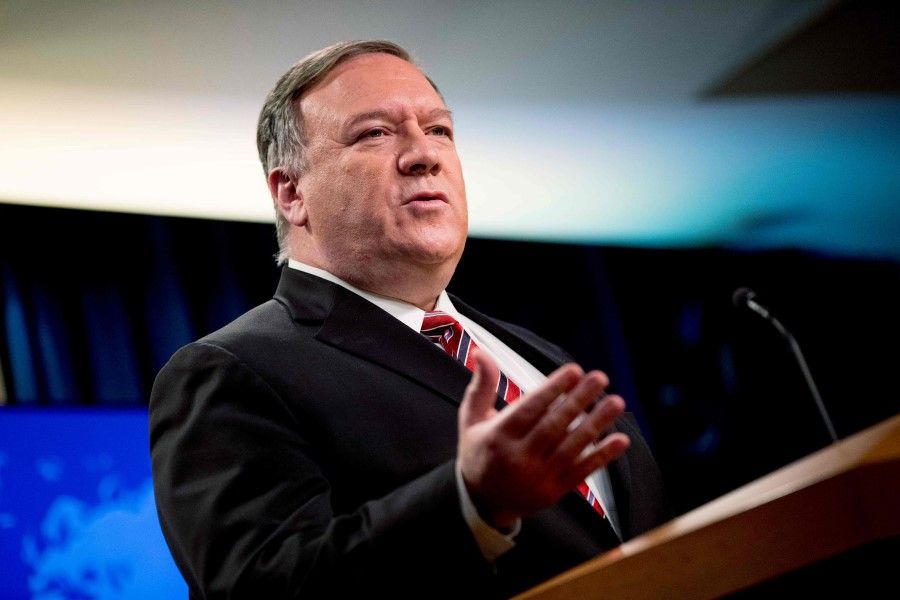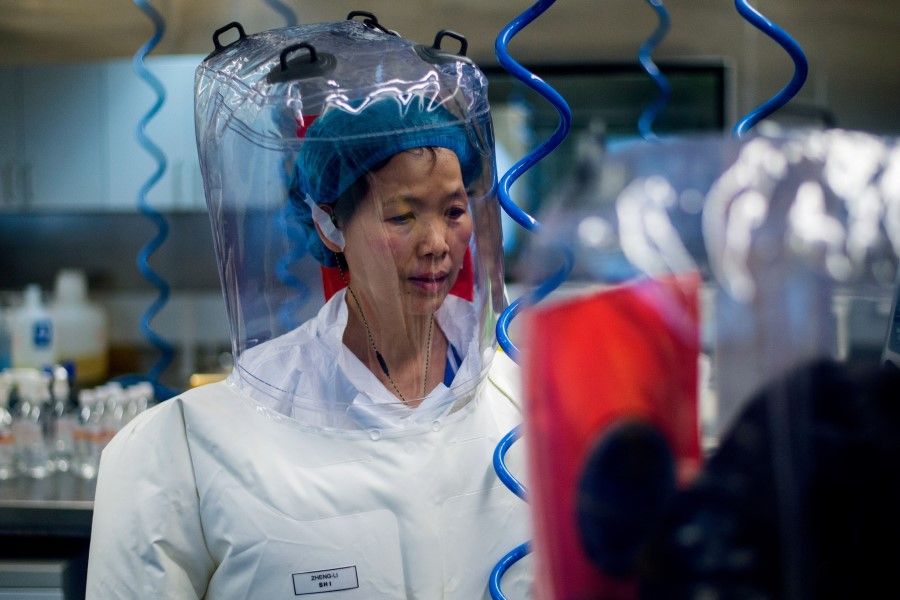Blame game can lead to showdown between China and the US

As the coronavirus continues to sweep the world, the blame game between the US and China continues over the source of and accountability for the pandemic. China-US relations have worsened, and there is a risk of a general conflict breaking out.
Like the China-US trade war, the US began this round of passing the buck. Since March, the outbreak has spun out of control in the US, causing serious damage to its economy and significantly affecting the chances of re-election for US President Donald Trump. Top officials including Trump and Secretary of State Mike Pompeo have started blaming the World Health Organisation (WHO) and China, where the outbreak first began, hoping that seeking accountability and even compensation from China will be a distraction from domestic political and economic pressure.
... with the US taking the lead, there will be louder calls for accountability and compensation from China, which might evolve into an international movement.
However, unlike the trade war, the US is pointing directly at China's ruling party and political system. Last month, Pompeo repeated the claim that the coronavirus originated in the Wuhan Institute of Virology (WIV). He harshly criticised the Chinese Communist Party (CCP) for holding back information on the outbreak, leading to enormous losses for the US and the world, and stressed that China would "pay a price". He also criticised China for taking advantage of the pandemic to engage in "bullying", and called on other countries to hold it to account. Most recently, he said on a television news programme that there was "enormous evidence" pointing to the virus originating in WIV.

Trump said at the White House on 30 April that he had evidence that the coronavirus was linked to a lab in Wuhan and he was considering retaliatory measures, with raising tariffs "certainly an option". Before this, the Missouri state government filed a formal civil lawsuit with the federal court, claiming that the pandemic had caused tens of billions in economic losses for the state, and seeking compensation from the Chinese government. The state of Mississippi also announced that it will also sue China.
Clearly, the US is no longer just talking about seeking accountability and compensation from China, but is taking action. Some other countries, including US allies, have also expressed similar intentions. We can expect that with the US taking the lead, there will be louder calls for accountability and compensation from China, which might evolve into an international movement.
The China authorities feel that Pompeo is worsening China-US relations, and trying to stir up the relationship between the CCP and the Chinese people in order to overthrow the CCP as the ruling party...
Of course, China will not just do nothing. Its authorities and mainstream media have taken aim at Pompeo, but have not named or criticised Trump.
Late last month, CCTV made the rare move of blasting Pompeo for three days in its news items, accusing him of spreading political poison and turning himself into a public enemy. Commentaries claim that there has been no Secretary of State like Pompeo in US history, bringing his "lying, cheating, stealing" CIA ways into the arena of US diplomacy, leading to the US's plummeting reputation, and breaking the limits of human decency.
This criticism is mainly because since taking office, Pompeo has been judgemental about China. He seldom sees China-US relations positively, and does not hide his hostility towards China. The China authorities feel that Pompeo is worsening China-US relations, and trying to stir up the relationship between the CCP and the Chinese people in order to overthrow the CCP as the ruling party, which goes far beyond a competition of national interests.

The Chinese authorities have not criticised Trump in order to leave room for continued relations with the US, and also because Trump has not criticised China in terms of ideology and political systems as much as Pompeo has.
We can expect that no matter how China defends itself and hits back, the US will not stop pushing the responsibility to China and seeking accountability. For the Trump administration, this is a powerful weapon to soothe domestic criticism of how the government has mishandled the outbreak, and to prevent the outbreak from affecting Trump's re-election. And it will not let go of this weapon, at least not before the US elections.
...there is no room for retreat for the Chinese authorities, which can only push back strongly.
At the same time, if the US clings to "accountability for China", it can hurt China's international image and influence, and create the impetus for increased isolationism and suppression against China in the post-coronavirus period, and halt the momentum of China's rise.
This blame game has made the already fraught situation in China-US relations, trade relations, cross-strait relations, and the South China Sea situation even more fragile. For China, this US-led campaign is political manoeuvring to smear China. In particular, there is no legal basis for seeking compensation, and it reminds the Chinese of the Boxer Indemnity 120 years ago, and so there is no room for retreat for the Chinese authorities, which can only push back strongly.
If the US continues to join with other countries in escalating their campaign to an international lawsuit, and resorts to freezing and seizing China's holdings in the US and other countries, including national debt and business assets, it will cause huge waves or even a showdown between China and the US.
It is hard to say what consequences this current shifting of responsibility will have, especially the US seeking accountability and compensation from China, but it will definitely have a significant impact on China-US relations and international relations.
On a related note, a research assessment reported to have been compiled by the Five Eyes alliance, comprising the US, UK, Canada, Australia and New Zealand, has stated that the Chinese government deliberately hid or destroyed evidence about the initial outbreak of the coronavirus.

The document said the group is investigating if the coronavirus originated in the WIV and the possibility of a leak, and that Shi Zhengli - the director of the Center for Emerging Infectious Diseases at the WIV - held about 50 virus specimens, one of which is a 96% genetic match with the novel coronavirus.
Reports have said that Shi herself was worried about a virus leak from her team, but repeated testing of samples from seven coronavirus cases showed that none were similar to the viruses her team was working on.
There were also recent rumours that Shi was trying to leave China with her family along with nearly 1,000 secret documents, and had applied for asylum in France at the US embassy. However, Shi denied these rumours two days ago in her WeChat group, stressing that she had done nothing wrong and firmly believed in science, and that "this too shall pass".

